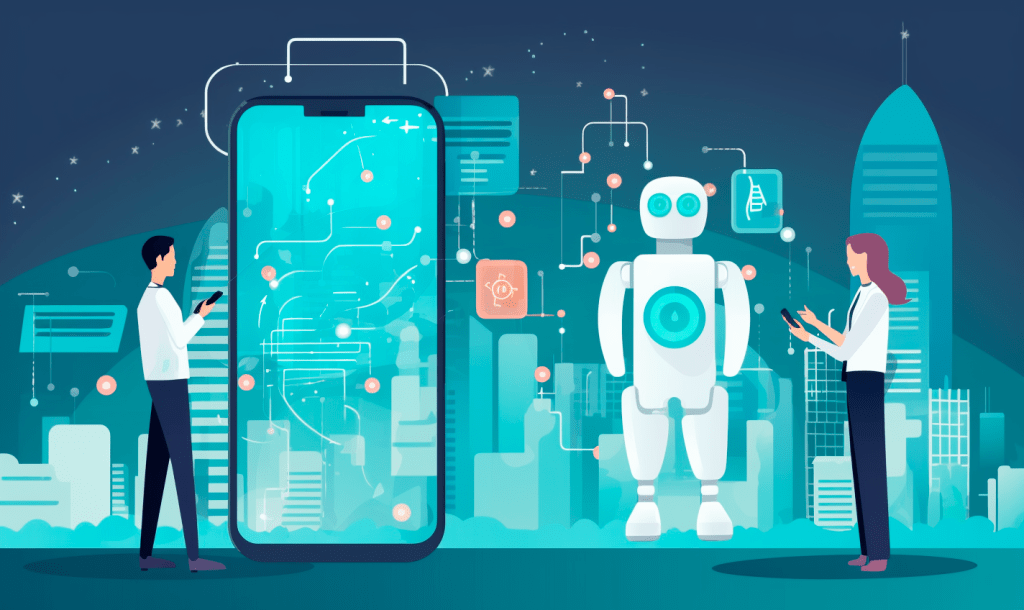August 03, 2023

The rapid growth of the delivery services and dark stores sector has transformed the way consumers shop for groceries and everyday essentials. This booming industry is driven by technological advancements and consumer demand for efficient and convenient shopping experiences. With the increasing reliance on technology, Artificial Intelligence (AI) has emerged as a game-changer in various aspects of the delivery and dark stores sector, including the recruitment process. In this article, we will explore the evolving landscape of these industries and demonstrate how AI chatbots are revolutionizing the recruitment process by assisting recruiters in finding qualified candidates, optimizing shift scheduling, and enhancing the overall candidate experience.
Evolving Landscape of Delivery Services and Dark Stores
The rise of e-commerce, coupled with changing consumer habits, has led to a surge in demand for delivery services and dark stores. Dark stores, also known as fulfillment centers or micro-fulfillment centers, are dedicated facilities that exclusively handle online orders, ensuring swift and seamless deliveries. This growing trend is reshaping traditional retail and supply chain operations and has created an urgent need for a more streamlined and efficient recruitment process.
AI Chatbots in Talent Acquisition
AI chatbots have emerged as invaluable tools in talent acquisition, effectively augmenting the capabilities of human recruiters. These virtual assistants leverage Natural Language Processing (NLP) and Machine Learning algorithms to engage with candidates, understand their preferences, and identify suitable matches for specific job roles.
- Finding Qualified Candidates
Recruiters in the delivery and dark stores sector often face the challenge of sifting through numerous applications to find qualified candidates. AI-powered chatbots can handle the initial screening process, assessing candidate qualifications, experience, and skills based on predefined criteria. By doing so, chatbots drastically reduce the time and effort required by human recruiters, allowing them to focus on more strategic aspects of the hiring process.
- Optimizing Shift Scheduling
Delivery services and dark stores operate on a 24/7 basis to meet customer demands. Shift scheduling can be a complex task, considering factors like availability, preferences, and workforce regulations. AI chatbots can efficiently manage shift scheduling by cross-referencing candidate availability with business needs, ensuring optimal coverage and minimizing scheduling conflicts.
- Enhancing Candidate Experience
A positive candidate experience is essential for attracting top talent in a competitive job market. AI chatbots excel in this aspect by providing quick responses to candidates’ inquiries, giving personalized feedback on their applications, and guiding them through the recruitment process. This instant and personalized interaction fosters a favorable perception of the employer brand and significantly enhances the overall candidate experience.
- Mitigating Bias in Recruitment
One of the major challenges in traditional recruitment processes is unconscious bias. Human recruiters may inadvertently favor candidates based on various factors like gender, ethnicity, or educational background. AI chatbots, being impartial and objective, evaluate candidates based solely on their qualifications and skills, thereby mitigating bias in the selection process.
- Tracking and Analyzing Performance
AI-powered recruitment platforms can capture and analyze a vast amount of data throughout the recruitment cycle. Recruiters can leverage this data to identify trends, evaluate the effectiveness of various recruitment strategies, and continuously improve their hiring processes. This data-driven approach leads to better decision-making and a more optimized talent acquisition strategy.
The delivery services and dark stores sector is experiencing exponential growth, fueled by technological advancements and changing consumer preferences. In this dynamic landscape, AI chatbots have become indispensable assets for recruiters, revolutionizing the recruitment process in these industries. By efficiently finding qualified candidates, optimizing shift scheduling, enhancing the candidate experience, and mitigating bias, AI-driven recruitment solutions pave the way for a more streamlined and efficient talent acquisition process. As this technology continues to evolve, businesses in the delivery and dark stores sector are likely to witness even greater advancements, cementing AI’s pivotal role in shaping the future of recruitment.
Don’t stand aside and schedule a demo to know how XOR AI-powered chatbots can improve hiring processes in your company!







